What does self-leadership mean to you and how do you practice it?
I first discovered the term self-leadership from Peter Drucker’s famous Managing Oneself. I was interested in what these inspirational leaders were doing to manage themselves, consciously or other.

I was not disappointed with the responses, only that I wish I’d known some of these earlier…
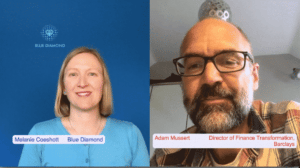
Adam Mussert – That’s an interesting one because I don’t necessarily think about self-leadership. However, I definitely think a lot these days about self-awareness and that was the first thing I considered here.
I’m not quite sure how I think about leadership related to self, but in terms of how you can operate most effectively, I think being aware of yourself and really understanding what makes you tick, understanding what excites you, what motivates you, and understand what your triggers and your blockers are. I think this is a really critical part of being effective.
There are some things I’ve been much more aware of these last four or five years. These include what makes me tick, what are the things that I need to be aware of (and there are some big things to be aware of) and also there is that awareness at the moment when something has suddenly shifted one’s mood. So, I think self-awareness is a very important point.
And the next thing I thought about in terms of self-leadership is about being really clear on what my priorities are. Whether it’s self-leadership for me or more generally, it’s important to know what your priorities are, and what’s important.
It can be quite easy to get swept along by what’s important to other people, so it’s important to take time to think about what’s important to you.
Looking at the situation we’re in now, which is really quite interesting, a lot of people are reconsidering what’s important for them because the world order has shifted substantially and this creates a different environment, a different work environment, different family environments, social environments, etc.
This often brings into sharp relief what one’s priorities are.
And the last point that springs to mind is having the confidence to pursue those priorities. And that comes back to the last point in that it’s often easy to be swept along by other people’s priorities and an organization’s priorities. and that’s not necessarily a bad thing if you’re aligned with that organization…but sometimes it takes a brave person that sees a disconnect and then does something about it.
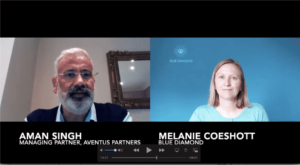
Aman Singh – Self-leadership for me would encompass someone who is continuously willing to learn, and wanting to learn.
Someone with a mindset where they’re ready and willing to learn their craft, hone their skills and keep developing themselves so that they can be ready and willing for the next job that comes through.
Self-leadership in my mind entails a thirst for knowledge. There’s a willingness to let go, and some sort of goal setting and wanting those goals.
Those would be three key areas for anyone who wants to go down the path of creating self-leadership for themselves.
In order to be the first one, a willingness and enthusiasm to learn. Within my own business, which is a fairly small business, I have created an objective for myself to be there to train everyone from the leaders in the team to the young trainees who join our firm every year. In order for me to meet that objective, I need to continuously improve myself, to meet my desire to help people improve themselves. The thirst for knowledge is I think paramount for self-leadership.
The next one is around having goals: both personal and business. In today’s world, our business and personal lives are quite intertwined. There is that responsibility on both sides. For both, you need to have goals that you set and you then monitor those goals. This could be something that needs to get continuously changed as you age, as you live your life, and as new challenges come into the business or your personal lives. Having the vision, possibly even having mind maps on both sides, where you set targets and goals for yourself and then you monitor yourself against those.
Finally, would be the willingness to let go so that one can focus on the most important things that one needs to achieve, and that also requires courage and trust in the people. In the business environment, we call it delegation. For me, that’s very, very important as a leader I need to be able to delegate responsibilities to my fellow colleagues, and collaborate with them in order to actually not only build their confidence and their abilities but also to share the success with them.
Those three things would be the most important for being a self-leader.
I think on a more philosophical level, I would say that one needs to have knowledge of your personal objectives and know what one wants to achieve in life, and what one wants to be remembered for.
The true metric of anyone’s life lies in being able to touch as many people and helping them try to grow and try to develop and try to succeed. I think that has given me personally the maximum amount of happiness. I think self-worth would be the word that I would describe myself. It gives me more self-worth knowing that I have an objective where I can touch other people’s lives and help them become better people. If I’m to achieve that in itself, I need to always focus on myself and see how I can better myself
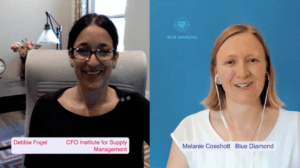 Debbie Fogel – I think that self-leadership is really very similar to leadership, just over ourselves, instead of others. I think many of the traits of great self-leadership really apply almost in the same way: knowing oneself, being authentic to oneself, being open-minded, having a learning mindset, and being very adaptable to change. I think for me; self-leadership is really about being willing to try new things and take risks.
Debbie Fogel – I think that self-leadership is really very similar to leadership, just over ourselves, instead of others. I think many of the traits of great self-leadership really apply almost in the same way: knowing oneself, being authentic to oneself, being open-minded, having a learning mindset, and being very adaptable to change. I think for me; self-leadership is really about being willing to try new things and take risks.
I’ve been very fortunate in my career. I had a lot of opportunities that came to me whether it was to work internationally for the first time at a very young age or in a role that I hadn’t previously done and just taking those risks and trying new things, I think this is one of the ways that I practice my own self-leadership and just thinking differently. I think that what can happen is that people tend to use a solution that worked before for a new problem and I think we have to always be thinking about “what is the problem now?” and be creative about how to solve this problem at this point in time.
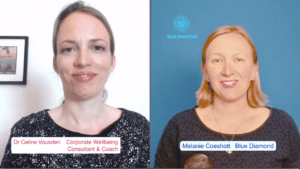
Dr. Celine Vousden – Self-leadership to me is about observing and managing ourselves. It comprises various elements; self-awareness of how we show up, our drive, having a psychological understanding of ourselves, what can trigger us, which elements we need in order to thrive, our strengths, and our values. Having a greater understanding of self can inform us how we work, operate, and thrive in the workplace and what we need more of, and what we may need to develop more of.
It also encompasses the concept of emotional awareness or emotional intelligence as Daniel Goleman spoke extensively about. Recognizing one’s strengths and weaknesses.
In terms of how do I practice this?
Personal development has been my hobby from a very young because I find it fascinating that we are born babies, these potentially malleable creatures. Our brains are fresh, ready to be imprinted and we’re shaped by the experiences that we have in childhood. We take on beliefs that are shown to us and modeled to us by our parents and other people around us. We grow up and that shapes how we view the world.
I find it fascinating that once you take on certain beliefs that perhaps limit you, the way the brain works is that you look for evidence to support that. How can you, therefore, expand that knowledge and that view of the world, how can you find beliefs that support you in order to move forward? Then more physiological measures too in terms of self-leadership, what do you need in order to rest and recuperate? This is sometimes the concept of when people may be working really intensely, but actually, from a brain and performance point of view, that’s not always necessarily going to give you your most creative, innovative, or effective results.
We need rest and recuperation. How do we recognize when we’re becoming too stressed, when do we need to dial things down, but also create enough conditions to have that kind of thriving element as well? Being aware physically and putting elements in place to support you, routines and rituals around that exercise or whatever it is that supports you.
These are some of my interpretations and things I do.
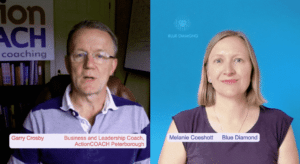
Garry Crosby – A few things I think of with self-leadership. First of all, you’ve definitely got to have a sense of independence. You’ve got to feel in your own self, that you’re able to make your own way and create your own set of circumstances.
So, for me as a business owner, I’ve got no boss. I’ve got nobody telling me what to do or which direction to go in, so I’ve got to have that real independence of thought. And I’ve got to have that self-reliance as well. I’ve got to realize that the things that I’m putting in place, the things that I’ve got control of, that I’m creating my own circumstances again.
And that’s what I try to do. I try to think of myself as a person who has got complete accountability and responsibility for my circumstances.
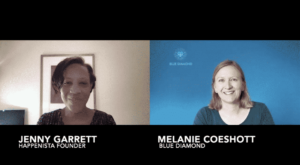
Jenny Garret – It’s such a good question because we always think about leadership outside ourselves. We think about ‘those leaders’, not us.
I think it’s where it all starts. If you want to be a good leader, then you have to become much more self-aware.
- You have to think about your own values and what you stand for.
- You have to think about the legacy that you want to leave as a leader.
It all starts with self and you have to know who you are and know what you’re about, and actually inspire yourself, to be the person that you would like to follow.
A few years ago, I did a video with a filmmaker, Nic Askew, based in America. I didn’t name the video, but he did. He named it, “Would You Follow You?”.
I think if you’re thinking about self-leadership, that’s the first question to ask, “Would I follow me?” If I wouldn’t, what work do I need to do on myself to ensure that I would? It all starts with you. It’s about working on yourself. It’s about being the leader that you want to follow and about holding yourself to the same standards that you would hold other people to.
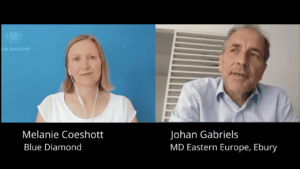
Johan Gabriels – Self-leadership for me relates to personal improvement and continuously pushing your own boundaries.
I think I’ve done that throughout my career. I used to work for Fast Moving Consumer Goods companies like Mars and Pepsi. I think from one day to another I moved from FMCG to Capital One, a monoline credit card company based in the US.
But I liked their vision, I liked their leaders and it was completely out of my comfort zone.
I learned a lot. I think I probably also made a lot of mistakes. But they allowed me to fail. And more importantly, to learn from it.
That was in the US, then I moved back, lived in different countries and I challenged myself (and my family sometimes), and pushed my borders.
But in that way, I became a more mature manager, I would say.
So self-leadership is about personal improvement and continual learning and growth. 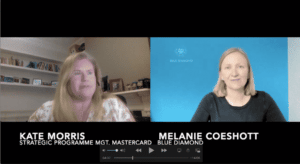
Kate Morris – It’s been very interesting for me for this role because I’m used to having my manager in the same time zone – in the same building! A lot of the work I’ve had to do is around looking after myself.
I have to make decisions and think about how I’m going to plan things out long before people that need to have that information are awake or ask for counsel. Thinking about how I plan out my day, thinking about when I need to do certain things.
Because a lot of that is done at night, I have to really melt in my home life. I have an 11-year-old that needs to be fed, and I need to make sure that she’s ready for school the next day. Things sometimes happen. The witching hour happens directly when people on the other side of the world want to talk to me.
I have to be very good at planning out when I’m doing things and being open and communicative about that to my stakeholders: when I’m not available and when you can buzz me. “It’s okay, don’t feel bad if you put in a 1 am call, because I will be awake”, those kinds of things because I’m away from everybody.
It’s not just been at this time because of COVID, it’s been since I started this role. I’ve made a really conscious decision to make sure that I’m ‘front and centre’, and having those really good, honest conversations with leaders.
It all has to be over the phone. I have to influence just with my voice. Most people here aren’t using video conferencing for different reasons. I have to lead and influence with my voice. I have to ensure my voice is heard, to be part of the conversation, without physically being ‘front and centre’. I’m not near the water cooler. I’m not part of those “Let’s go to the coffee shop and have a chat offline” conversations.
I’ve made a conscious decision to include some of that during my daytime, to catch up with different leaders locally. To ensure I’m across what’s going on. They’re hearing my thoughts and suggestions about what’s happening. If it’s in a meeting at a time that’s not convenient to me – I try not to be on a call at 3 am – I want to make sure that my message is getting across and the people that represent me understand what I’m saying. 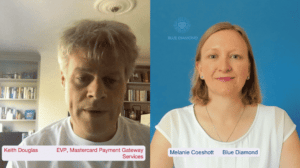
Keith Douglas – Self-leadership means a couple of things to me.
Firstly, you’ve got to practice what you preach and you’ve got to understand what you bring as a leader to a team, or to an environment. You play a role, not just as the leader of that team, but you are a contributor, you are a motivator, and you are a participant in all manner of things.
And hence for me, self-leadership is about understanding and recognizing that and finding a way to ensure that you play that role, in addition to clearly leading the broader team that you have responsibility for.
Specifically, that means three things to me:
It’s about understanding what my edge is. And by edge, I mean, what is it that I bring to the table? What is that I’m particularly good at? What is it that I really enjoy? And being able to harness that in the context of the team.
That edge then helps me define my guiding principles as a leader, whether it’s through my lens or the lens of the wider team, self-leadership of the wider team.
I’ve kind of fine-tuned what those guiding principles are for me and what people can expect from me, what people can anticipate when they interact with me. Consequently, I hope that in doing so, they can bring the best out of me and help me demonstrate to them what I can do and help them drive forward their particular project or business objective.
I have six or seven of those guiding principles, that I think are very straightforward. They’re not rocket science and probably aren’t unfamiliar to your clients or viewers.
One of those is being present. When I’m in a meeting I am engaged, whether I’ve set the meeting up or as a participant, I am there to contribute in the best way that I can.
Another one is that everyone gets an A as we start a performance year, a project, or a discussion. I’m already assuming that the individuals that I’m working with, within my team, can do their job well. My role is not to get in the way of that, but actually to help ensure that they can get an A+ in terms of their performance.
Those guiding principles help me define my manifesto as a leader and I’m not getting all political here. But essentially what I what from the team and how I can contribute to that team, as well as help members of that team get better.
So, those three things: knowing my edge, knowing my guiding principles, and turning them into how I lead the team are really the core aspects of my self-leadership and how that plays out in the wider team.
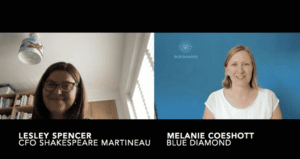
Lesley Spencer – I think it’s all about managing yourself and understanding yourself and getting the best out of yourself. Me, over the years, I’ve done this in a number of different ways.
I like to read about various different styles of leadership and different examples and individuals. Over the last couple of years, I’ve also seen the benefits of meditation, just in terms of trying to quieten my mind, still my thoughts and actually make me less judgmental.
One of the key things that I’ve done in recent years is really to get a better understanding of myself and actually accept and see the positives in that.
There’s some great stuff that I did around Marcus Buckingham’s Strengths Finder. I enjoyed reading this but also seeing strengths – that sometimes people can see as negative or points that you need to work around – but actually seeing it quite differently and embracing these points. Instead of trying to spend your time on correcting the 20%, rather focus more effort on the 80% that you’re already really good at. So, that for me has been great.
As has Susan Cain’s book Quiet that she’d written about introverts, as I am an introvert. I know a lot of people are surprised about that as I present a lot and I appear to be very outgoing. But actually, I am an introvert. I’ve spent a lot of time understanding what it is I need to actually get the best out of myself, so that I can act in a more extrovert way while looking after myself and making sure that I can deliver on my needs as well. I’m actually seeing that as a positive – what I can bring – rather than criticizing myself for what I’m not.
I’ve also then tried to do the same thing with the people that I work with, who don’t necessarily fit one mold.
So, I think it’s listening to lots, reading, trying different examples, and actually celebrating strengths.

Thanks for reading. Check out the other interviews in the Post Lockdown Leadership Review series.
Check out other Blue Diamond articles to help you take control of your work and life.
